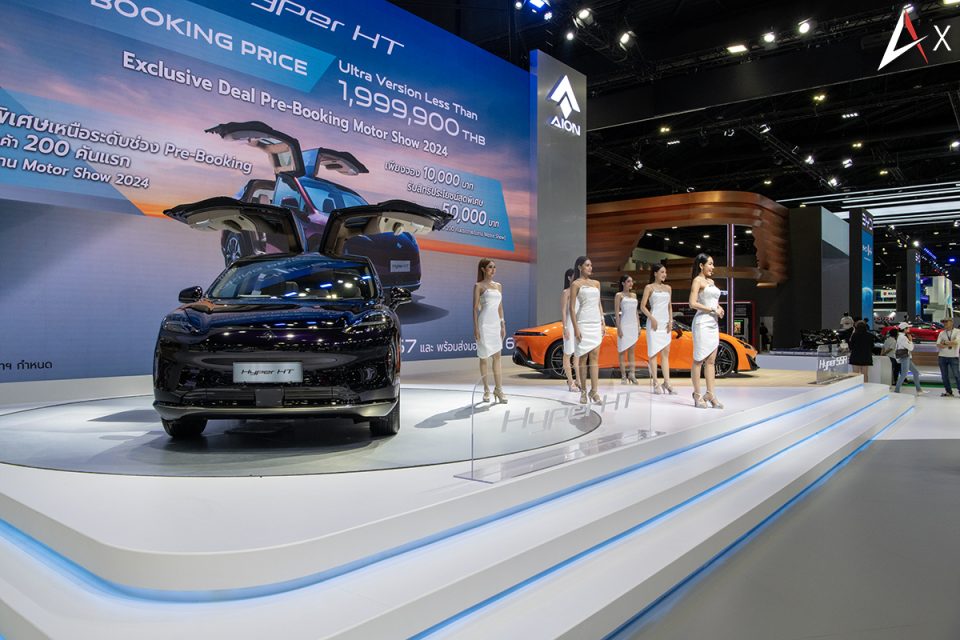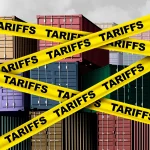A recent rise in electric vehicle (EV) sales suggests a positive outlook for the Thai EV market, yet challenges remain that could hinder sustained growth despite double-digit increases.
From January to April, domestic sales of battery electric vehicles (BEVs) increased by 46% year-on-year to 33,633 units in the passenger car segment. Meanwhile, internal combustion engine (ICE) vehicles saw a 13% decline, totaling 48,784 units, according to the Automotive Industry Club of the Federation of Thai Industries (FTI). Plug-in hybrid EVs (PHEVs) experienced a remarkable 409% surge to 3,543 units, while hybrid EVs (HEVs) fell by 11% to 41,228 units. HEVs continue to dominate the market with a 20% share, closely trailing ICE vehicles at 24% during the early months of 2025.
Despite these promising figures, concerns are mounting over increasing competition among EV manufacturers and a downturn within Thailand’s automotive sector. The ongoing price war, driven by many companies including BYD, aims to boost sales but exacerbates market difficulties. Notably, Hozon Auto, owner of Neta Auto Thailand, faces financial issues, while GWM has shifted focus toward producing more diesel vehicles despite investments in EV manufacturing.
Potential buyers are also hesitant due to high EV maintenance costs, particularly expensive batteries. Additional financial hurdles include rising insurance premiums and stricter bank lending, as lenders tighten auto credit amidst high household debt—currently about 88.4% of GDP, down from a peak of 95.5% in 2021 but still high compared to regional counterparts. The country’s GDP is projected to grow just 1.5-2% in 2025, further dampening the market.
Experts suggest that the intense price competition is likely to persist through the year, driven by a sluggish economy. Chinese manufacturers, facing declining sales globally, have resorted to aggressive pricing strategies, such as BYD’s recent model price cuts, with some EVs priced below many motorcycles. This price war pressures other automakers to follow suit, risking brand value and customer trust. Industry leaders believe that only the strongest companies will survive this period of fierce competition, with some expecting the trend to ease next year once market dynamics stabilize.
Automakers are also adapting by diversifying their offerings. GWM Thailand, for example, is maintaining a focus on diesel vehicles while investing heavily—around 23 billion baht—into EV production facilities and components for BEVs and batteries. The company emphasizes a multi-powertrain approach, providing hybrid, plug-in hybrid, and fully electric options to cater to Thai consumers’ diverse preferences.
Government policy remains supportive of EVs but has shifted slightly to include incentives for PHEVs, which use both ICE and electric motors. In April, the government approved reduced excise taxes for PHEVs with longer driving ranges to encourage broader adoption while new investment flows into the sector.
Meanwhile, Chinese EV firms like Neta Auto Thailand are undergoing restructuring amid financial difficulties, with plans to reorganize management and potentially convert debt into equity to stabilize operations. The company denies bankruptcy claims but faces scrutiny over its financial health, which could impact customers in terms of after-sales service and spare parts supply.
Industry analysts warn that such uncertainties may dampen consumer confidence and affect insurance markets as well. For example, insurers like AXA and Allianz express concerns over repair delays and higher costs related to parts shortages, which could lead to increased premiums or tighter coverage conditions, especially if automakers exit the Thai market.
Looking ahead, the global and local EV market faces a cautiously optimistic outlook. 2024 was a challenging year for motor insurance, with declines in policyholder numbers due to economic strains, but a rebound is expected as EV sales continue to grow. However, profitability remains an issue for insurers due to high parts costs, especially batteries, emphasizing the need for specialized EV insurance products.
In summary, while recent sales figures boost confidence in Thailand’s EV sector, structural issues such as intense price competition, financial instability among some automakers, and consumer apprehensions suggest the road ahead will be complex. Stakeholders advise that careful navigation and strategic adaptation will be crucial for sustaining growth in the years to come.





